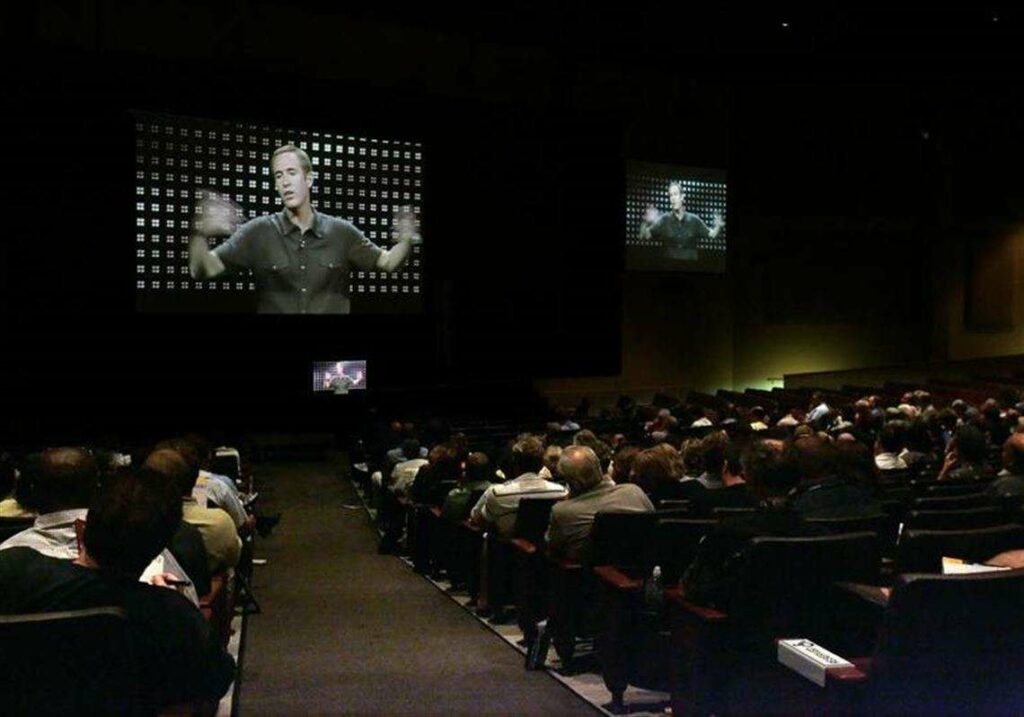Andy Stanley appeared at a couple of conferences this past week and said some very unfortunate things. [Editor’s note: it is called Antinomian heresy.] He spoke at both Rethink Leadership, a conference specifically designed for senior pastors that took place April 29-May 1, 2020, and also the Orange conference, which took place the same day.
Brian Dodd was dispatched by Injoy Stewardship Solutions to provide live blogging for both the events. The full audio of these conferences is not available for free, but rather are available behind a paywall that we find needless and prohibitively expensive, and given that we don’t want to financially support any of this, have chosen not to overcome the paywall.
Thankfully, Brian Dodd provides several dozen quotes from Stanley’s sessions, which was on “how churches can invite the next generation in your church to a dynamic faith and how they think”
Given that we don’t have access to primary sources and can’t independently verify the accuracy of the tweets, we take them with a tiny grain of salt. However, the fact that Dodd was there on paid assignment and live-blogged most of the events would give him more credibility and accuracy than some rando rage-tweeting while his attentions are divided. Here are a few we chose to highlight. We left most spelling and grammar errors intact.
Numbers 4, 5, 11, and 13 are especially enlightening.
- The term “Christian” is not a dynamic term anymore. “Christian” is a label. That label has lost its dynamic.
- The way we were raised is being a Christian was more about what a person believes than what a person does.
- This is about changing language, not changing your faith.
- Establish the Gospels as the text that informs their faith, not the entire Bible.
- I’m not trying to deny the value of the entire Bible. I’m trying to elevate the significance and the relevance of the Gospels.
- The Old Testament got Jesus here but the New Testament that we find what He’s like and what He did.
- “The law is only a shadow of the good things that are coming – not the realities themselves” – Hebrews 10:1
- Shadows always distort the nature of what’s behind the shadow.
- Who has all authority? Who are we asking children and students to submit to? It’s not a book. It’s a person. Jesus.
- The invitation into a dynamic faith must be centered around the person of Jesus.
- The Christian faith did not begin with Genesis. The Christian faith began with Jesus.
- The Bible did not create Christianity. Christians did not create Christianity. The resurrection launched Christianity. He is the epicenter of our faith.
- Inviting this generation to a faith based [on] the entire Bible is a non-starter because they can all discover those parts of the Bible that you know are not about what you are teaching them.
- They’re going to ask good questions…. They are far less inclined to adopt a pre-suppositional approach to their faith.
- We need to adjust, not our theology, but our approach. We need to adjust our sales.
- Our faith can withstand the onslaught of the critics if we build our faith on the right foundation. The right foundation is the Gospels. The foundation of our faith is a person Jesus through the resurrection.
- Anchor their orthopraxy to Jesus’ new covenant command. Orthodoxy is right belief. Orthopraxy is right practice.
- We are told exactly what love looks like. In the Gospels we see this brand of love illustrated through Jesus’ life. In the Epistles we see this brand of love applied in Paul’s life.
- Following Jesus is not about a prayer that you pray. Following Jesus is about a life that you live. At the center of this life is that ethic of love.
- The dynamic of faith is not what we believe. The dynamic of faith is what we do. Being a Christian, there’s no dynamic there anymore. But following Jesus… that what makes faith real, practical, and that type of faith changed the world.











